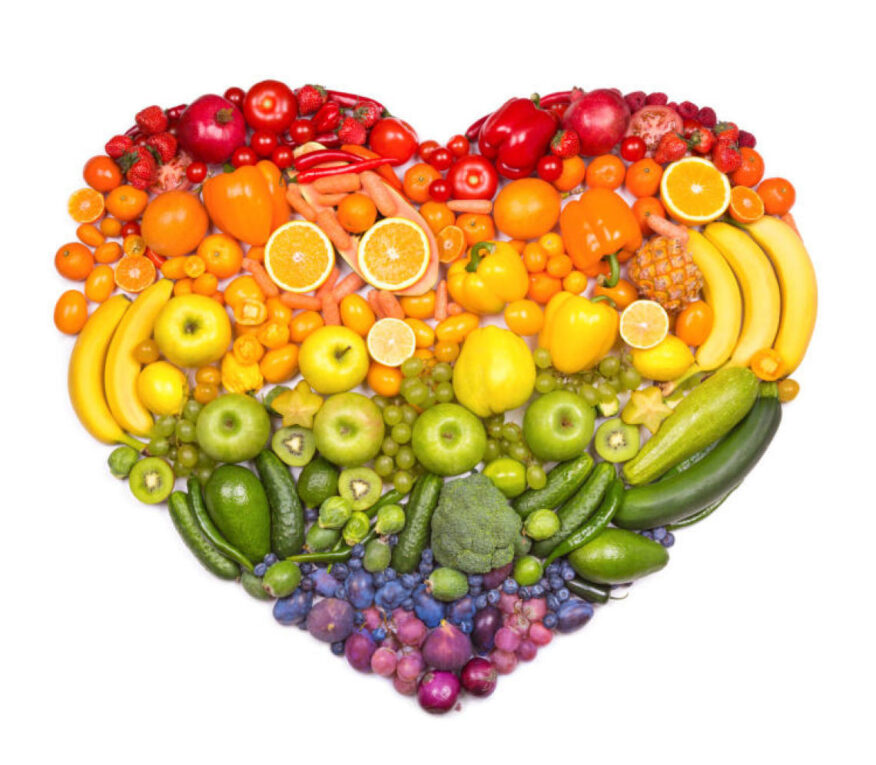Plants contain an abundance of life-sustaining compounds known as phytonutrients. These compounds are essential for plant growth and survival but also confer powerful health benefits to humans who consume plants. Scientists have linked phytonutrients to disease prevention, longevity, and overall wellness.
Carotenoids
Carotenoids are the pigments that give fruits and vegetables their vibrant orange, yellow, and red hues. Some prominent examples of carotenoids include beta-carotene, lycopene, lutein, and zeaxanthin. Carotenoids are potent antioxidants that protect cells from oxidative damage caused by free radicals. Numerous studies associate higher carotenoid intake with lowered cancer risk, especially for cancers of the prostate, lung, stomach, and colon. Beta-carotene in particular appears to guard against heart disease by preventing plaque buildup in arteries. Carotenoids also support eye health and may help prevent age-related macular degeneration and cataracts. Colorful produce like carrots, sweet potatoes, and tomatoes provide an abundance of these vision- and health-promoting compounds.
Flavonoids
Flavonoids make up one of the largest families of Phytonutrients. Subclasses of flavonoids include flavonols, flavones, flavanones, anthocyanins, and flavan-3-ols. Flavonoids give fruits, vegetables, tea, and wine their pigmentation and astringency. Research suggests flavonoids lower inflammation throughout the body and protect cells from damage. Specific flavonoids have exhibited cancer-fighting abilities for cancers of the breast, colon, prostate, and more. Anthocyanins in berries have potent anti-inflammatory and antioxidant effects, helping offset age-related cognitive decline. Catechins from green tea show promise for weight management and metabolic health due to their ability to increase fat burning and regulate blood sugar levels. Flavonoids demonstrate cardiovascular benefits like reducing blood pressure and LDL (bad) cholesterol levels.
Polyphenols
Polyphenols represent a diverse group of phytonutrients found abundantly in plant foods and beverages. Some major subclasses of polyphenols are flavonoids, lignans, stilbenes, and phenolic acids. Multiple studies link high polyphenol intake to reduced chronic disease risk. Polyphenols combat inflammation, fight age-related cellular damage, and improve metabolic health. For instance, resveratrol, a stilbene from grapes, berries, peanuts, and pine nuts, shows anticancer properties by slowing tumor growth and inducing cancer cell death. Phenolic acids in olives, olive oil, and coffee confer anti-inflammatory and blood sugar regulating actions which may prevent metabolic syndrome and diabetes. Cocoa and berries are excellent sources of polyphenols that protect cardiovascular health through their antioxidant potency.
Isothiocyanates and Indoles
Cruciferous vegetables like broccoli, cabbage, cauliflower, and kale harbor phytonutrients called glucosinolates. Upon chopping or chewing, glucosinolates are enzymatically converted into isothiocyanates and indoles. Isothiocyanates like sulforaphane from broccoli show cancer fighting abilities by targeting malignant cells and inducing their self-destruction. They also boost detoxification enzyme function in the liver. Indole-3-carbinol from cabbage crucifers metabolizes estrogens in a way that reduces breast cancer risk. These potent cruciferous phytonutrients deserve recognition for their anticancer effects gained simply through regular vegetable consumption.
Allium Compounds
The allium family of vegetables including garlic, onions, leeks, and chives boast sulfur-containing compounds like allicin, allyl sulfides, and diallyl disulfide. These organosulfur compounds are responsible for garlic and onions’ characteristic pungent flavors and aromas. Studies show allium compounds help lower blood pressure and guard against cardiovascular disease. They also possess anticlotting, antibacterial, and anticancer properties. One mechanism is their ability to inhibit formation of carcinogens and promote their elimination from the body. Alliums demonstrate protection against various cancers including cancers of the stomach, prostate, breast, pancreas, and colon. Inflammation-fighting abilities of alliums benefit overall health.
Sulfides and Glucosinolates
Other lesser-known but promising Phytonutrients include the sulfur-containing sulfides in asparagus, cabbage, and broccoli as well as glucosinolates like gluconasturtiin from watercress. Just a small quantity of watercress per day supplies gluconasturtiin to support detoxification enzyme function in the liver. Sulfides found in artichokes strengthen liver cell function and nutrient metabolism. Various sources agree that regularly consuming a variety of plant foods provides an optimal balance and synergy of protective phytonutrients to invigorate health at a cellular level. While specific phytonutrients lend individual benefits, their combined effects safeguard the entire body from chronic disease development and aging through antioxidant and anti-inflammatory activities.
Plants have co-evolved with humans for millennia, providing sustenance as well as defensive compounds to fight infection and heal wounds. Today modern science shows that the very same phytonutrients granting plants their own survival strategies form an integral component of human health. No nutrient capsule can replicate the complexity and interaction of phytonutrients naturally bundled together in plants. Regularly enjoying a rainbow assortment of produce and plant-derived beverages links us to the original source of life – nature itself. Let us embrace our role as stewards by choosing sustainably grown options to reap phytonutrients’ manifold protective powers for generations to come.
*Note:
1. Source: Coherent Market Insights, Public sources, Desk research
2. We have leveraged AI tools to mine information and compile it

